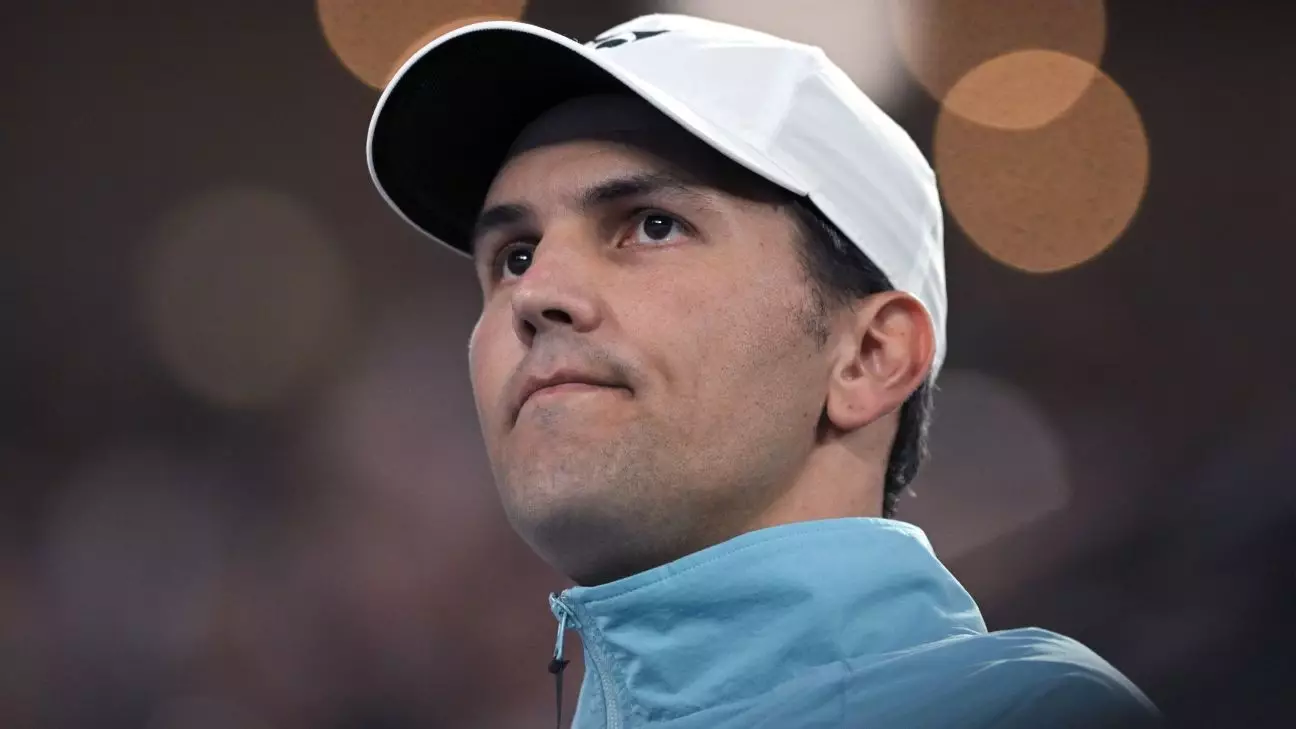In recent weeks, the women’s tennis world has been rocked by the ongoing saga surrounding the suspension of Stefano Vukov, former coach of Elena Rybakina. The Women’s Tennis Association (WTA) confirmed that the suspension remains firmly in place following an independent investigation into Vukov’s conduct, a decision that has significant implications for Rybakina’s career. This situation underscores the delicate balance between player-coach relationships and the governing body’s obligation to uphold a standard of conduct, which ensures the integrity and safety of the sport.
Rybakina, the reigning Wimbledon champion, has publicly backed Vukov, asserting that he “never mistreated” her throughout their partnership. Her strong defense of her former coach raises questions about the disconnect between the player’s experiences and the WTA’s enforcement actions. It illustrates the complex dynamics within sports, where personal relationships can clash with institutional regulations. Rybakina’s acknowledgment of Vukov’s previous role in her success highlights the emotional and professional stakes involved when a coach is suspended under allegations that remain publicly vague.
The WTA has been careful not to disclose specific findings from the investigation, citing the need for confidentiality. This lack of transparency can breed frustration among players and fans alike, who may feel sidelined in understanding the rationale behind such punitive measures. The implications of Vukov’s suspension extend beyond his personal circumstances; they reflect on the way the WTA handles breaches of conduct, emphasizing the importance of an impartial system that maintains both fairness and accountability. While the WTA states its commitment to a fair process, the ambiguity surrounding Vukov’s situation may hinder the organization’s credibility and raise questions about the effectiveness of its code of conduct.
As for Rybakina’s coaching landscape, the situation has significantly altered her strategic direction. Just before the US Open in 2022, she announced that she would no longer work with Vukov; nevertheless, she attempted to reintegrate him just before the Australian Open. With the provisional suspension still active, Vukov’s involvement is restricted, adding further strain on Rybakina’s preparations. The introduction of Goran Ivanisevic, a former Wimbledon champion, as her new coach seemed promising initially, yet his departure shortly after Rybakina’s exit from the Australian Open proves the instability this suspension has caused in her camp.
This incident is not just a matter for Rybakina and Vukov; it serves as a reminder of the challenges faced by female athletes who often operate in the shadow of their male counterparts. Coaches play pivotal roles not just as trainers, but as mentors and key figures in the athletes’ lives. The fallout from Vukov’s suspension reflects a broader concern within women’s sports about support systems for athletes, gender dynamics, and the consequences of public scrutiny.
The suspension of Stefano Vukov encapsulates a myriad of complexities within the framework of competitive sports. While the integrity of the game must be preserved, the emotional toll on athletes and the uncertainty surrounding coach-athlete partnerships must also be acknowledged. The WTA’s ongoing handling of this situation will be crucial in shaping perceptions about governance in women’s tennis moving forward.


Leave a Reply